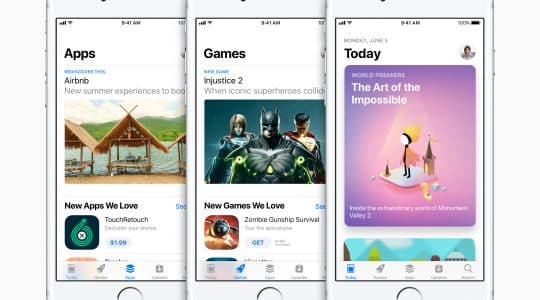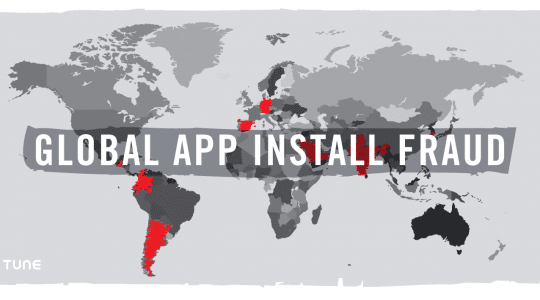
While driving new users to download your app is an important part of your app marketing strategy, paid app advertising can add up fast. That’s why it’s so essential that, in addition to knowing where to leverage your dollars, you also have a solid organic strategy.
You can read more about how to master both paid and organic app discovery (along with every other stage of the app marketing funnel) in our recent e-book, “Deconstructing the Mobile Marketing Funnel.” But if you want a few quick tips for how to climb to the top of the app store without breaking the bank, here are four steps you can start implementing today.
1. Choose your keywords wisely
Keywords tell consumers what your app is about, and help app stores understand how to classify your app. When choosing your keywords, keep these best practices in mind:
- Find your sweet spot. Target keywords with high search volume (lots of eyeballs) and low difficulty (little competition). Uncover your perfect mix using tools like App Store Analytics.
- Take advantage of every field. Put three to five of your most important keywords in your title, and the rest in your keyword field (for iOS) or description (for Google Play). Avoid repeating terms in your title and keyword field, and don’t worry about small connector words like “of,” “the,” and so on.
- Get creative. When brainstorming keywords, check out your reviews to see what language users naturally use to describe your app. Also keep an eye on your competition to get a feel for how they rank. Tools like Google Adwords and App Store Analytics can help you generate new ideas and even suggest relevant keywords.
2. Optimize your app store page
Once you lock down your keyword strategy, A/B test elements on your app store page to see which components drive the most downloads. Measure things like the number of visitors, installs, and conversion rates for elements such as titles, descriptions, icons, screenshots, videos, and branded app store pages.
Tools like App Store Analytics A/B Testing allow you to test the performance of different elements, so you can see which ones stand the greatest odds of being successful before you implement a change in the app store.
3. Leverage your ratings and reviews
Ratings and reviews play a huge part in encouraging consumers to download your app. In fact, more than 68 percent of app users said it was an important factor in influencing them to download — that’s more than the title, screenshots, or icons. You can improve your own app ratings and reviews by:
- Paying attention to common themes in user messaging
- Comparing ratings for release updates to determine features users find valuable
- Analyzing historical ranking data to forecast installs
- Using learnings to improve your app
- Prompting users to leave reviews after they’ve accomplished something in your app
4. Track your competition
In addition to tracking how users respond to your app’s new releases, you should monitor your competitors to see when they release app updates, edit app store assets, or change keyword rankings. Tools like App Store Analytics will notify you of these changes so you can consider adjustments where competitors outrank you.
Get big wins with little spends
By paying attention to how consumers discover your app in the app store and optimizing elements to drive more conversions, you can see a tremendous lift in downloads without even paying a cent for advertising.
Download “Deconstructing the Mobile Marketing Funnel,” to learn more about organic app discovery, along with how to master every other phase of the mobile marketing funnel. Get your copy today, and watch your app climb to the top of the ranks.
Have other tips on boosting app discoverability? Share in the comments and help a fellow marketer!
Like this article? Sign up for our daily blog digest right in your inbox.
Author
Becky is the Senior Content Marketing Manager at TUNE. Before TUNE, she handled content strategy and marketing communications at several tech startups in the Bay Area. Becky received her bachelor's degree in English from Wake Forest University. After a decade in San Francisco and Seattle, she has returned home to Charleston, SC, where you can find her strolling through Hampton Park with her pup and enjoying the simple things between adventures with friends and family.

![The Road to Mobile Engagement [Infographic]](https://www.tune.com/wp-content/uploads/2018/11/cpi-cpa-applift-infographic-540x300.jpg)


Leave a Reply
You must be logged in to post a comment.